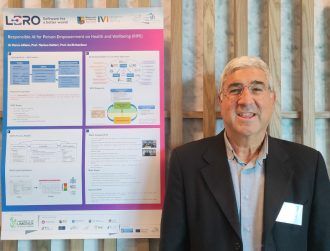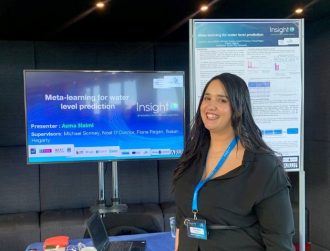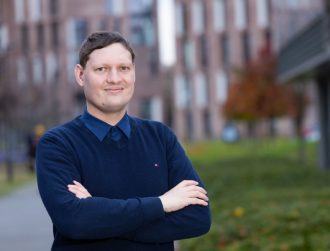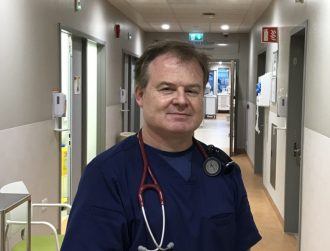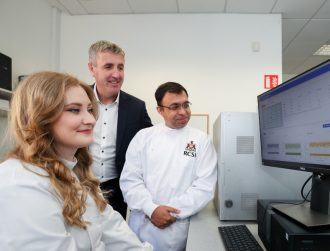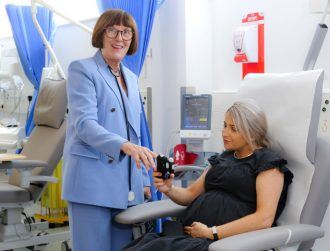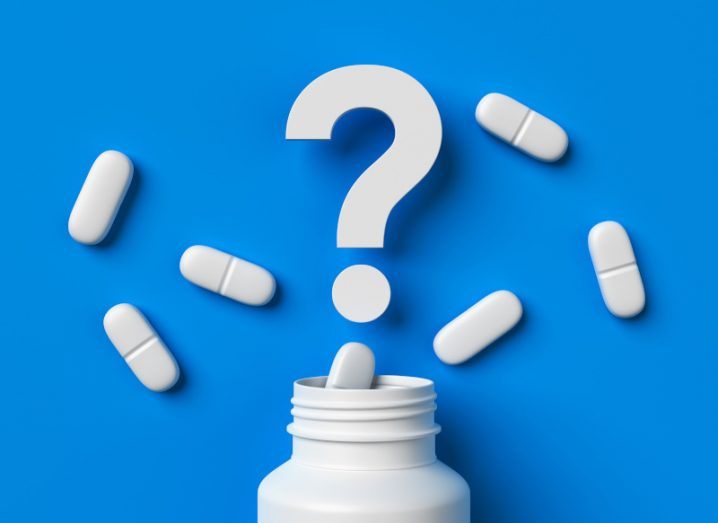
Image: © Mikhail/Stock.adobe.com
If you’ve ever wondered whether sparkling water damages your teeth or if sitting too close to the TV will damage your eyes, now you have a website to ask an expert.
“Does listening to radio, music or podcasts make a difference to sleep?”
“Listening to music might improve people’s sleep quality overall, but we cannot be sure if it helps with specific components of good quality sleep like falling or staying asleep, the length of time you stay asleep or the number of times you wake.
“We found no reviews about the effects of listening to radio or podcasts on sleep.”
This question was submitted by a user to iHealthFacts.ie and was answered by a team of experts from University of Galway and the Health Service Executive (HSE).
Dr Paula Byrne is the lead researcher with iHealthFacts.ie and is a postdoctoral researcher with Evidence Synthesis Ireland and the HRB-Trials Methodology Research Network at the University of Galway. Her work focuses on sorting health facts from fiction to improve the public’s health literacy levels.
Previously, Byrne worked with the Health Technology Assessment Directorate in the Health Information and Quality Authority (HIQA), where she developed a novel method of justifying new practices in medical exposure to ionising radiation. During the Covid-19 pandemic, she produced rapid reviews on a range of scientific topics to inform the National Public Health Emergency Team (NPHET).
Tell us about your current research.
iHealthFacts.ie is a website where members of the public can submit questions about health claims they’ve heard on social media and elsewhere. The project was designed to tackle healthcare myths and help the public to check the reliability of popular health claims quickly and easily through this online resource.
Using scientific evidence, such as trusted health sources and peer-reviewed studies, the research team analyses information to support or refute a healthcare claim.
The website is funded by the Health Research Board (HRB) and the Health Service Executive and supported by University of Galway. Its aim is to help people to think critically about health claims and make well-informed choices.
In your opinion, why is your research important?
What we do has two purposes. Firstly, we undertake evidence synthesis, that is, bringing together the best available evidence on a topic at a point in time. This allows people understand the evidence (or limitations of evidence) on any given topic and helps them (we hope) to make informed decisions.
Secondly, and almost more importantly, we raise awareness of ways of thinking critically about health claims. We do this by adding ‘Things to remember’ at the end of each question we answer. These are tips for critical thinking based on the Informed Health Choices website which aims to help people interrogate health claims and try to figure out which are trustworthy.
Ultimately, people will make their own decisions on health, so having good health literacy skills will empower them to make good decisions.
What inspired you to become a researcher?
I was a late starter to research! I have a healthcare background (radiation therapy). However, I hadn’t worked at this for years. I was very interested in the overuse of medicine and, when my youngest child started school, I went back to college. I completed an MSc in health economics before securing a place on the Sphere PhD programme (funded by the HRB).
I was fortunate to be in the right place at the right time during the pandemic to witness evidence production and use for policymaking up close. This focused my attention on the interpretation of evidence, and I was fortunate to secure the postdoctoral position with the University of Galway on the iHealthFacts project. I find it very satisfying to help promote critical thinking about health claims.
What are some of the biggest challenges or misconceptions you face as a researcher in your field?
The biggest challenge is the expectation of black-and-white answers to questions about health claims. Evidence synthesis frequently turns up uncertain answers. Indeed, we have processes to try to rate the level of certainty in our research. This can seem unsatisfactory but represents the best evidence we have at that moment in time about that topic.
Secondly, the concept of ‘misinformation’ in the health context is troubling, given the uncertainty of evidence on many topics. Our PhD student, Johanna Pope, is currently undertaking a concept analysis of misinformation asking ‘What is misinformation?’ in the context of health. She is doing this by reviewing all the literature on the topic and interviewing people (professional health communicators and members of the public) about their thoughts on the issue.
Do you think public engagement with science and data has changed in recent years?
I think the Covid-19 pandemic enhanced interest in scientific research and research methods. This resulted in an unprecedented focus by media, policymakers and the public on how we find/form/create evidence. However, from the perspective of evidence synthesis, there were instances of evidence not being used to make decisions or where expert opinion trumped evidence. Decision-making, of course, must combine ‘pure’ evidence and pragmatism.
How do you encourage engagement with your own work?
The iHealthFacts process has public engagement embedded at every stage. We have two public and patient involvement (PPI) representatives who review every question we answer. In addition, we have embarked on consultations with NGOs who represent various groups in society. We are asking them what they think of iHealthFacts and the way we present answers and how we can improve to better serve the people with whom we engage. We are also active across social and news media.
Find out how emerging tech trends are transforming tomorrow with our new podcast, Future Human: The Series. Listen now on Spotify, on Apple or wherever you get your podcasts.

